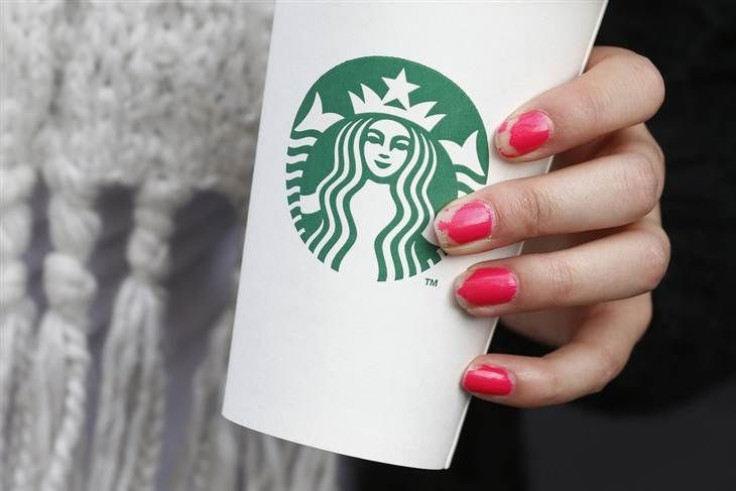Starbucks (SBUX) Trademark Enforcement: When A Cease-And-Desist Letter Is Also A Promotional Opportunity
Book’s marketers say a ruckus from Starbucks would help its promotional value.

When it comes to aggressive trademark enforcement, few companies are more notorious than Starbucks Corporation (NASDAQ:SBUX). Lawyers for the Seattle-based coffee/cafe giant are as quick with a cease-and-desist letter as its baristas are with an espresso machine. The result has been some of the most memorable trademark skirmishes in recent history, including Starbucks’ 12-year battle to prohibit a family-owned New Hampshire roaster from selling a coffee called “Charbucks,” a fight Starbucks lost last year.
But the company’s well-earned reputation for litigiousness has also made it a target for what can only be described as cease-and-desist trolling, willful attempts by attention-seekers looking to provoke a reaction from the company by using the Starbucks name and famous green siren logo without its permission. Comedy Central’s Nathan Fielder, who is behind the parody pop-up shop “Dumb Starbucks Coffee,” is a key example. When the shop made a brief appearance in Los Angeles’ Los Feliz neighborhood in February, Fielder admitted that the whole thing was a marketing stunt. “We are simply using their name and logo for marketing purposes,” said an FAQ posted in the window. “By adding the word ‘dumb’ we are technically ‘making fun’ of Starbucks, which allows us to use their trademarks under a law known as ‘fair use.’”
Starbucks played right into Fielder’s hands, issuing a stern statement to media outlets saying Dumb Starbucks “cannot use our name,” and insisting that the company was “evaluating our next steps.” Of course, there was little need for such an evaluation, as the parody shop was closed down the next day. Starbucks came out looking like a bully and Fielder made off with a ton of free publicity. The moral of the story raises an interesting question for legions of unknown artists out there looking to stand out from the crowd: Is risking a trademark lawsuit worth the publicity such a suit might bring?
That’s the gamble currently being undertaken by Brian Hodges, an author who self-published a book called “Starbucks Bitches,” which he describes as an adult romance novel and “rival to ‘Fifty Shades of Grey.’” The novel follows the love lives of five diverse women who hang out together at the coffee chain. On the book’s cover is a near-identical knockoff of the Starbucks logo, complete with green circle and chunky typeface. Rather than cross their fingers and hope the book goes unnoticed by the Starbucks legal team, the book’s marketers -- inspired by the brouhaha over Dumb Starbucks -- appear to be saying, “come and get us,” using promotional material that prominently mentions the coffee giant’s tendency to “frown on the use of their brand in media titles.”
“Starbucks making a ruckus about this book will only boost the promotional value of it,” Brian Carter, the author’s press rep, told International Business Times in an email.
But there’s one problem. Starbucks hasn’t made a ruckus, at least not yet. According to Carter, the author was informed by friends who work for Starbucks’ corporate office that a cease-and-desist letter is likely on the way. The company’s PR team supposedly became aware of the book through a Google alert. Starbucks would not confirm this. The company did not respond to numerous requests about “Starbucks Bitches,” which is unusual given its usual aforementioned propensity for saber-rattling. Keep in mind, this is the same company that once threatened a Missouri brewery owner over a craft beer called “Frappicino” and then later vehemently defended its decision to do so.
Could it be that Starbucks, tired of being portrayed as a litigious Goliath to throngs of well-intentioned Davids, has decided to take a more cautionary approach? Trademark enforcement is a tricky business, and legal experts say companies have to take each possible instance of infringement seriously. But they also have to weigh the risks of brand dilution against the potential for looking like a bully. And it’s a delicate balance, said Leslie Lott, an intellectual-property lawyer. “If you’re the trademark owner, you always have to be mindful of your own public relations,” she told IBTimes in February in response to the Dumb Starbucks case. “You have to ask if is this something that you want to go after or not.”
In fact, Carter agrees, and admits that “Starbucks Bitches” does present a likely dilemma for the company’s PR team, particularly as the book’s story puts Starbucks in a positive light. (Hodges is a fan of the coffee company who, according to Carter, decided on the name in 2013 after visiting the original Starbucks location near Seattle’s Pike Place Market.) “[T]he main characters are religious about frequenting Starbucks weekly, and one of them works there,” Carter said.
Hodges, for his part, said in an email that he’s only trying to enjoy the momentum of the Dumb Starbucks press, and the book’s title was chosen before the pop-up parody shop. So the ball is in Starbucks’ court. Only time will tell if the company has finally woken up and smelled the you know what.
Got a news tip? Email me. Follow me on Twitter @christopherzara.
© Copyright IBTimes 2024. All rights reserved.












